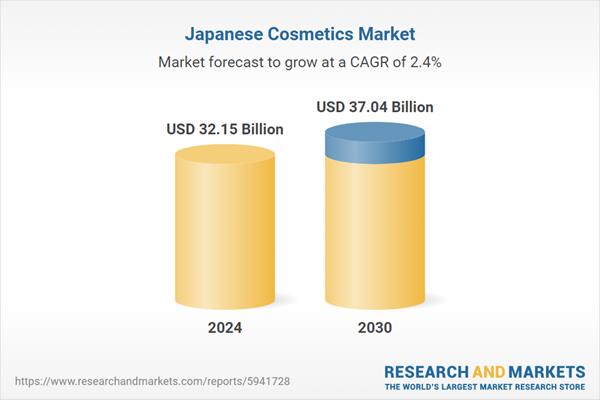Speak directly to the analyst to clarify any post sales queries you may have.
10% Free customizationThis report comes with 10% free customization, enabling you to add data that meets your specific business needs.
This health-conscious and eco-friendly orientation aligns with the broader lifestyle choices of Japanese consumers. Additionally, the influence of J-beauty and K-beauty trends, coupled with strong brand loyalty and a preference for premium products, supports long-term market growth. Technological innovation continues to shape the landscape, with companies leveraging nanotechnology, biotechnology, and AI-powered platforms to introduce cutting-edge products. Digitalization and the rise of e-commerce have further enhanced product accessibility and consumer engagement, contributing to the sustained growth of Japan’s cosmetics industry.
Key Market Drivers
Growing Working Population Across the Region
The expanding working population in Japan is a major factor driving the cosmetics market, as it directly influences purchasing behavior and lifestyle choices. As of 2024, Japan’s labor force reached approximately 69.6 million, showing a year-on-year increase. With more women actively participating in the workforce and a rise in dual-income households, there has been an increase in disposable income, allowing consumers to invest more in personal care and cosmetics.Working professionals often seek grooming products that are quick to apply, long-lasting, and suitable for daily use, such as sweat-resistant makeup and skin-friendly formulations designed to withstand long hours and environmental stressors. Moreover, the emphasis on professional appearance and camera-ready grooming - especially with the rise in hybrid work environments - continues to drive demand for multifunctional cosmetics. This trend has led to product innovation targeting convenience, performance, and skincare benefits, shaping the evolution of cosmetics for Japan’s working demographic.
Key Market Challenges
Fluctuating Prices of Raw Material
Volatile raw material prices present a notable challenge for Japan’s cosmetics industry, impacting production costs and market stability. Factors including global supply chain disruptions, increased fuel and energy costs, and a weakened yen have inflated expenses associated with ingredients, packaging, and logistics. In FY2023, many contract manufacturers in Japan experienced sharp increases in input costs, prompting pricing negotiations with clients to offset financial strain. These pressures have led to higher consumer prices, influencing purchasing behavior and shifting preferences toward more affordable, mid-range products. Brands are now focusing on cost optimization, reformulating products, and enhancing operational efficiency to stay competitive. Navigating these cost fluctuations is essential for maintaining consumer trust, brand value, and market share in an increasingly price-sensitive environment.Key Market Trends
Technological Innovation
Technological advancement continues to be a cornerstone of growth in Japan’s cosmetics market. Brands are embracing innovation to enhance product effectiveness and customer engagement. Notably, in February 2024, Shiseido introduced an AI-powered formulation development system in partnership with Accenture, integrating advanced algorithms into its proprietary Voyager digital platform. Such technologies enable rapid product development and customization.Nanotechnology is widely used in skincare and sun protection, improving active ingredient delivery and sensory appeal. AI and AR tools have transformed consumer interaction, offering personalized skincare analysis and virtual makeup trials, while biotechnology is driving the adoption of fermented ingredients and probiotics to support skin health. Smart packaging, including QR codes for product transparency and verification, is gaining popularity as well. These innovations reflect consumer demand for high-performance, personalized, and trustworthy beauty solutions, reinforcing Japan’s global leadership in cosmetics R&D.
Key Players Profiled in this Japan Cosmetics Market Report
- Loreal S.A.
- Unilever Japan Group
- The Procter & Gamble Company
- Beiersdorf AG
- Avon Cosmetics Limited
- Revlon
- Coty Inc.
- Hoyu Cosmetics Co., Ltd
- Kao Group
- KHK Cosmetics
Report Scope:
In this report, the Japan Cosmetics Market has been segmented into the following categories, in addition to the industry trends which have also been detailed below:Japan Cosmetics Market, by Product Type:
- Hair Care
- Skin Care
- Nail Care
- Lip Care
- Eye Care
Japan Cosmetics Market, by Nature:
- Organic
- Regular
Japan Cosmetics Market, by Skin Type:
- Normal
- Dry
- Oily
- Combination
- Sensitive
Japan Cosmetics Market, by End User:
- Men
- Women
- Kids
Japan Cosmetics Market, by Distribution Channel:
- Supermarket & Hypermarket
- Convenience Stores
- Specialty Stores
- Online
- Others
Japan Cosmetics Market, by Region:
- Hokkaido & Tohoku
- Chubu
- Chugoku
- Kyushu
- Rest of Japan
Competitive Landscape
Company Profiles: Detailed analysis of the major companies present in the Japan Cosmetics Market.Available Customizations:
With the given market data, the publisher offers customizations according to a company's specific needs. The following customization options are available for the report.Company Information
- Detailed analysis and profiling of additional market players (up to five).
This product will be delivered within 1-3 business days.
Table of Contents
Companies Mentioned
The leading companies profiled in this Japan Cosmetics market report include:- Loreal S.A.
- Unilever Japan Group
- The Procter & Gamble Company
- Beiersdorf AG
- Avon Cosmetics Limited
- Revlon
- Coty Inc.
- Hoyu Cosmetics Co., Ltd
- Kao Group
- KHK Cosmetics
Table Information
| Report Attribute | Details |
|---|---|
| No. of Pages | 82 |
| Published | May 2025 |
| Forecast Period | 2024 - 2030 |
| Estimated Market Value ( USD | $ 32.15 Billion |
| Forecasted Market Value ( USD | $ 37.04 Billion |
| Compound Annual Growth Rate | 2.3% |
| Regions Covered | Japan |
| No. of Companies Mentioned | 11 |









